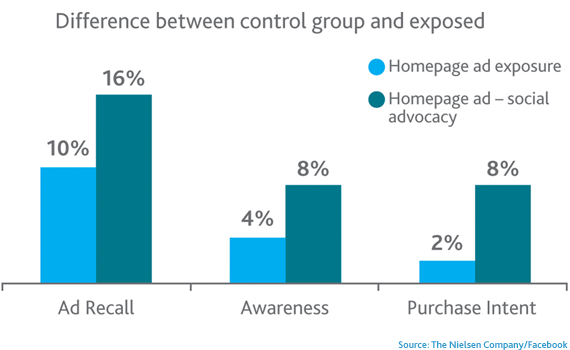With +1, Advertising Is Getting Social
Anyone willing to bet on Google’s attempts to get social would have to have deep pockets and a short memory. For years, Google crowed about the fact that Orkut outweighed Facebook in two of the most important developing markets (Brazil & India), but that is likely to change soon (Facebook is gaining in both), whilst […]
Anyone willing to bet on Google’s attempts to get social would have to have deep pockets and a short memory.
For years, Google crowed about the fact that Orkut outweighed Facebook in two of the most important developing markets (Brazil & India), but that is likely to change soon (Facebook is gaining in both), whilst Buzz hasn’t exactly set the world on fire, and Wave is now just a distant, confusing memory.
That said, Google’s new +1 is worthy of attention, even if it’s only because of what it tells us about the evolution of advertising.
For years, online marketers sold their products on the basis that there were entirely attributable, and could drive absolute ROI, with no uncertainty about wastage or loss: no more would marketers be able to trot out the old cliché:
I know that half of my advertising dollars are wasted … I just don’t know which half.
Instead, we could tell clients exactly which pennies turned into pounds, or cents into dollars, and, helped Google get very, very rich in the process.
But the only problem with this is that many clients don’t have anything to sell online.
They can’t attribute value to clicks and visits.
And, most importantly, they know that TV, with its supposedly unattributable ads, shifts product, end of story.
Facebook discovered this when they started trying to move away from their self-service product and to start taking big TV budgets from FMCG clients.
In order to do so, they had to prove the value of digital beyond the click, and did so through their partnership with Nielsen and what was interesting about this is that it showed that social context improved ad effectiveness.
Since starting this research programme, Facebook has taken on hundreds of millions in ad revenue, from major TV brands including Nike, Unilever, P&G and Coke, and is predicted to top $2 billion in 2011. And the rest of the web giants, new and old, have been watching. Because of what Facebook has done to socialise advertising, they’ve added engagement into the dry mix of digital marketing, and it’s starting to pay.
They say that imitation is the sincerest form of flattery, in which case Facebook should be feeling seriously flattered at the moment. Where Facebook has Engagement Ads, with social functionality including likes and comments, Twitter has Promoted Tweets.
With these, advertisers can only advertise with content that is inherently social because if an ad is not retweeted sufficiently, it comes off of the platform, and the cost model is implicitly linked to virality and engagement.
In a similar vein, YouTube’s new TrueView product allows viewers to turn off pre-roll ads and mean advertisers aren’t charged if the ad is played for less than 30 seconds/to completion (for ads under 30 seconds long).
Although this isn’t particularly social, it’s all about engagement. Whilst it doesn’t seem to be mentioned anywhere, I’ve been told by senior sources at YouTube that, in a similar vein to Promoted Tweets, ads that are clicked off too often will be taken down. This means that if ads aren’t engaging, they simply won’t be seen.
And now comes Google’s +1. For the moment, according to the launch information, receiving +1’s won’t result in a change in CPC, other than minor changes due to the increase in CTR it has tended to cause in beta tests, and the effect this will have on Quality Score.
It seems to me that if the system takes off, and it is a reasonably big if, it would make total sense for Google to include +1 data in its Quality Score algorithm, and reward more engaging ads, in the same way that Twitter does and YouTube seems likely to. In many ways, it would appear to be a natural, if not inevitable evolution of the product.
Of course, there’s also a risk in this insistence on ads being engaging: some products really aren’t that interesting, and many advertisers may not have the time, resource or skill-set to try to change this. But as Facebook continues its inexorable march into the land of big budget advertisers, it’s in everyone else’s interests to try to keep up.
Contributing authors are invited to create content for Search Engine Land and are chosen for their expertise and contribution to the search community. Our contributors work under the oversight of the editorial staff and contributions are checked for quality and relevance to our readers. The opinions they express are their own.
Related stories
New on Search Engine Land
